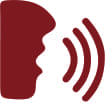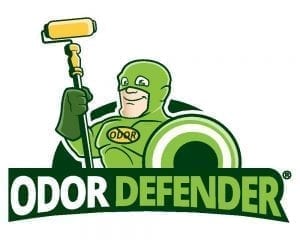If Your Walls Could Talk™
They Would DEMAND a New Generation of Smoke & Odor Protection!
How prevalent is the problem of odor, smoke, & fumes?
- In 2016, the CDC reported that 37.8 MILLION U.S. adults were current cigarette smokers. This represents an estimated 14,590,800 households impacted by cigarette smoke.
- In 2016, Gallup reported that over 40 MILLION U.S. adults say they smoke pot. This represents an estimated 15,440,000 households impacted by pot smoke. The increase in legalization of medicinal and recreational marijuana makes this issue even more serious.
- The National Fire Protection Association reported in 2016 that 352,000 homes were damaged by fire.

If Your Walls Could Talk™ – they would confirm that we have a MASSIVE problem with our indoor air quality from various forms of smoke and it will only grow bigger!
What is the effect on your health?
Over time, pollutants and odors from tobacco and pot smoke as well as pet odors, collect and concentrate on surfaces creating an unpleasant, potentially unsafe indoor air quality condition and could cause significant health risks as documented by research including:
- Based on the U.S. Surgeon General’s 2014 report, Second- Hand Smoke from tobacco may contain more than 7,000 chemicals such as: Carbon Monoxide, Hydrogen Cyanide, Benzene, and Poly-Aromatic Hydrocarbons. (PAHs)
- According to the American Lung Association, Second-Hand Smoke from marijuana may contain many of the same toxins and carcinogens found in marijuana smoke, in similar amounts.
The researchers measured ammonia levels up to 20 times higher in marijuana smoke than in tobacco smoke. - The National Fire Protection Agency reports that the after effects of a residential fire can linger for weeks.

If Your Walls Could Talk™ – even brief exposure to second-hand smoke impairs health, imagine breathing in DECADES of cigarette & pot smoke that’s trapped in your walls!
What is Thirdhand smoke?
Thirdhand smoke consists of the residue from cigarettes, pot, and other products left behind after smoking, and builds up on surfaces and furnishings.
- The National Institute of Health found that these toxic brews can then reemit back into the air and recombine to form harmful compounds that remain at high levels long after smoking has stopped occurring.
- According to the National Institute of Health, Thirdhand smoke consists of residual smoke pollutants that:
- Remain on surfaces and in dust after tobacco has been smoked
- Are re-emitted back into the gas phase
- React with oxidants and other compounds in the environment to yield secondary pollutants.

If Your Walls Could Talk™ – they would DEMAND the new generation of odor defense and protection!


